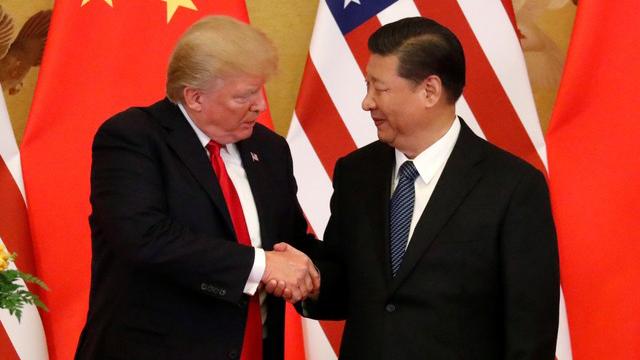U.S. and China are on the brink of currency war: Here's how it all went down
The Trump administration on Monday evening took its trade spat with China to a whole new level -- to the brink of a currency war -- as the Treasury Department labeled China a "currency manipulator."
"“In recent days, China has taken concrete steps to devalue its currency, while maintaining substantial foreign exchange reserves despite active use of such tools in the past,” the Treasury Department’s statement read. “The context of these actions and the implausibility of China’s market stability rationale confirm that the purpose of China’s currency devaluation is to gain unfair competitive advantage in international trade.”
The Treasury's actions just hours after China let its currency weaken to a more than one decade low against the U.S. dollar. Beijing's actions drew the ire of President Trump and sent shock waves rippling across Wall Street.
"China dropped the price of their currency to an almost a historic low," Trump tweeted on Monday. "It’s called “currency manipulation.” Are you listening Federal Reserve? This is a major violation which will greatly weaken China overtime!"
The Dow Jones Industrial Average was down more 700 points on Monday, and has lost over 1,300 points since last week's re-escalation of the trade war through midday. Dow futures were higher by more than 200 points on Tuesday morning.
| Ticker | Security | Last | Change | Change % |
|---|---|---|---|---|
| I:DJI | DOW JONES AVERAGES | 50081.33 | -34.34 | -0.07% |
| SP500 | S&P 500 | 6970.26 | +37.96 | +0.55% |
| I:COMP | NASDAQ COMPOSITE INDEX | 23269.011709 | +237.80 | +1.03% |
Here's a look at how trade tensions have flared back up over the past few days:
July 31: Trade negotiators leave China without a deal
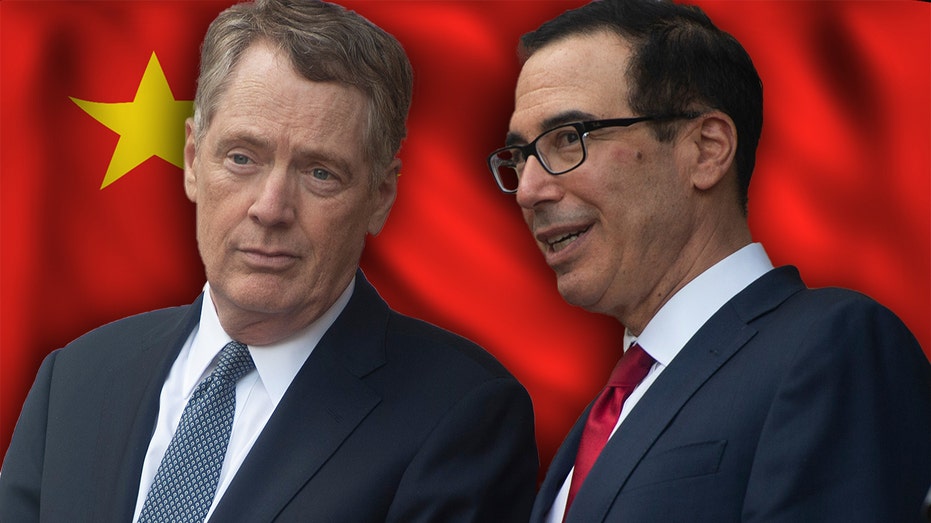
US Trade Representative Robert Lighthizer (L) speaks with Steven Mnuchin, United States Secretary of the Treasury, as they wait for Chinese Vice Premier Liu He to arrive at the the Office of the United States Trade Representative for tariff negotiati
Trade negotiators led by U.S. Trade Representative Robert Lighthizer and Treasury Secretary Steven Mnuchin left Shanghai, China, without securing a deal during the 12th round of face-to-face trade talks. The negotiations, which ended 40 minutes ahead of schedule, were focused on topics such as forced technology transfer, intellectual property rights, services, non-tariff barriers and agriculture.
Following the talks, negotiations are expected to continue in Septemeber. On Wednesday, the Dow Jones Industrial Average plunged, at one point, more than 700 points.
August 1: Trump announces new tariffs on Chinese goods
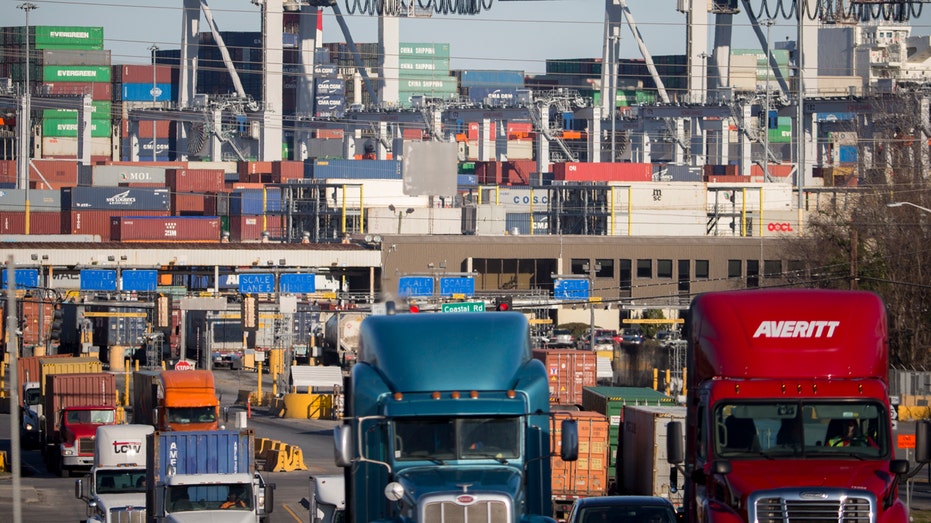
FILE- In this Jan. 30, 2018, file photo, tractor-trailer trucks move cargo in shipping containers out of the Port of Savannah in Savannah, Ga. President Donald Trump announced Friday, June 15, 2018, that starting next month the U.S. will impose a 25 (AP)
Trump announced the U.S. would be placing 10 percent tariffs on $300 billion worth of Chinese goods beginning Sept. 1.
"Our representatives have just returned from China where they had constructive talks having to do with a future Trade Deal," the president said last Thursday in a tweet. "We thought we had a deal with China three months ago, but sadly, China decided to re-negotiate the deal prior to signing. More recently, China agreed to buy agricultural product from the U.S. in large quantities, but did not do so."
Trump added: "We look forward to continuing our positive dialogue with China on a comprehensive Trade Deal, and feel that the future between our two countries will be a very bright one!"
Speaking to reporters later on Thursday, Trump said he could "always do much more" with respect to tariffs and that the 10 percent rate could, if necessary, be raised "well beyond 25 percent."
The Dow Jones Industrial Average shed 280 points or 1 percent on his comments.
August 2: Trump irked by China's behavior during trade talks
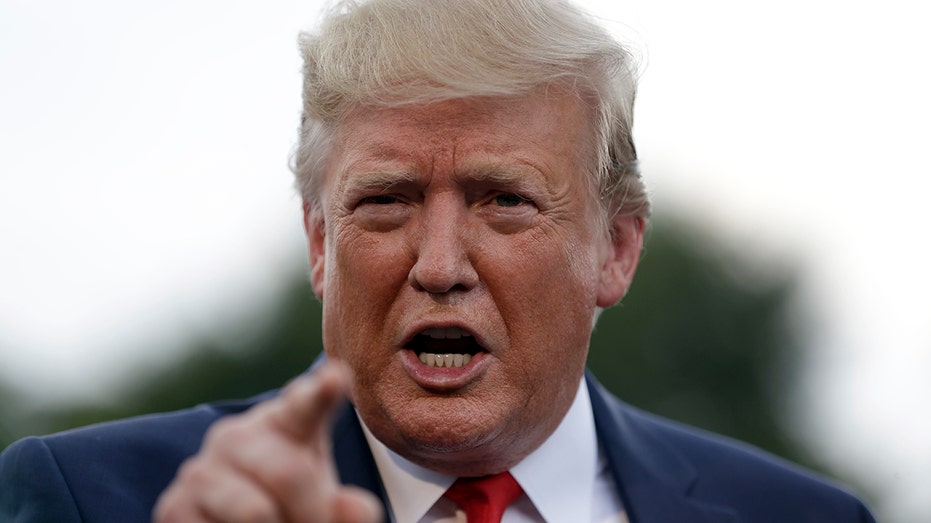
President Donald Trump talks to reporters before departing for a campaign rally in Cincinnati, on the South Lawn of the White House, Thursday, Aug. 1, 2019, in Washington. (AP Photo/Evan Vucci) (Associated Press)
China's negotiating team showed up without any intention of making a deal and instead used hardball tactics, sources told FOX Business' Edward Lawrence.
The meeting was used by the Chinese as a way for its newest trade negotiators to familiarize themselves with the ongoing talks. Chinese Commerce Minister Zhong Shan asked Lighthizer line-by-line questions about the agreement on the table.
White House chief economic adviser Larry Kudlow told FOX Business' "Varney & Co" last Friday the president was "not satisfied" with the outcome of the talks and noted the Chinese were not addressing a number of issues, including the fentanyl trade problem.
The Dow Jones Industrial Average lost 98 points or 0.4 percent.
August 3: Trump hits China on Twitter
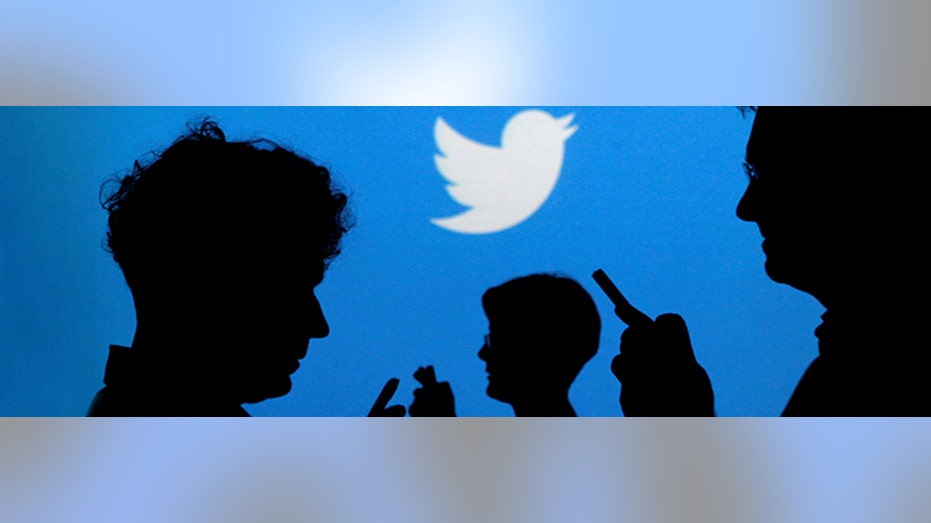
FILE PHOTO: People holding mobile phones are silhouetted against a backdrop projected with the Twitter logo in this illustration picture taken September 27, 2013. REUTERS/Kacper Pempel/Illustration/File Photo - S1AEUIXLWVAA
"Things are going along very well with China," Trump tweeted on Saturday. "They are paying us Tens of Billions of Dollars, made possible by their monetary devaluations and pumping in massive amounts of cash to keep their system going. So far our consumer is paying nothing - and no inflation. No help from Fed!"
August 5: China retaliates
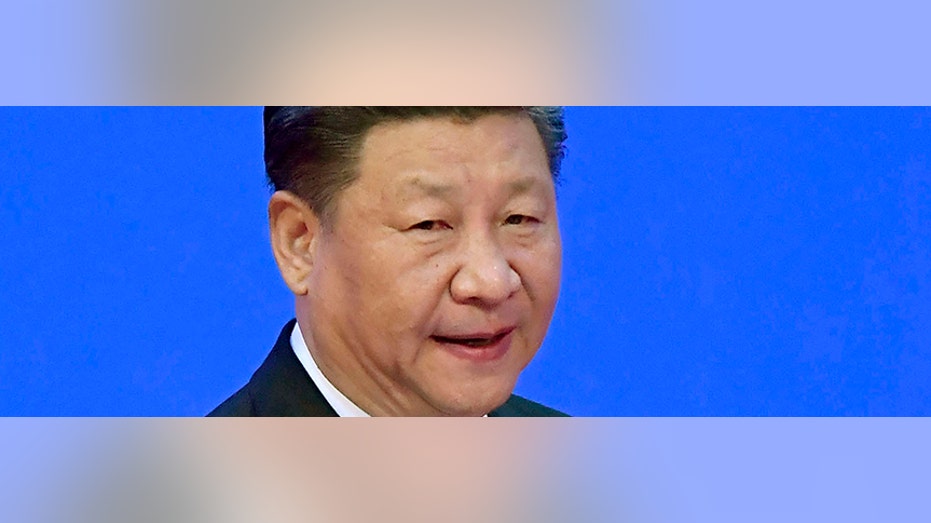
China's President Xi Jinping prepares to deliver his opening speech at the Boao Forum for Asia Annual Conference in Boao in south China's Hainan province, Tuesday, April 10, 2018. Xi promised to cut auto import taxes, open China's markets further and
China let its currency, the yuan, weaken below seven per dollar for the first time since 2008. It also reportedly ordered state-owned businesses to stop purchasing U.S. agricultural products, but that was called "untrue" by Cong Liang, an official at China's National Development and Reform Commission.
CLICK HERE TO GET THE FOX BUSINESS APP
A weaker yuan makes Chinese goods cheaper for overseas buyers. That will be especially important since China continues to lose its U.S. customers to other countries. On Friday, the U.S. Commerce Department said Mexico has supplanted China as the U.S.'s largest trading partner.
August 5: The U.S. names China a "currency manipulator"
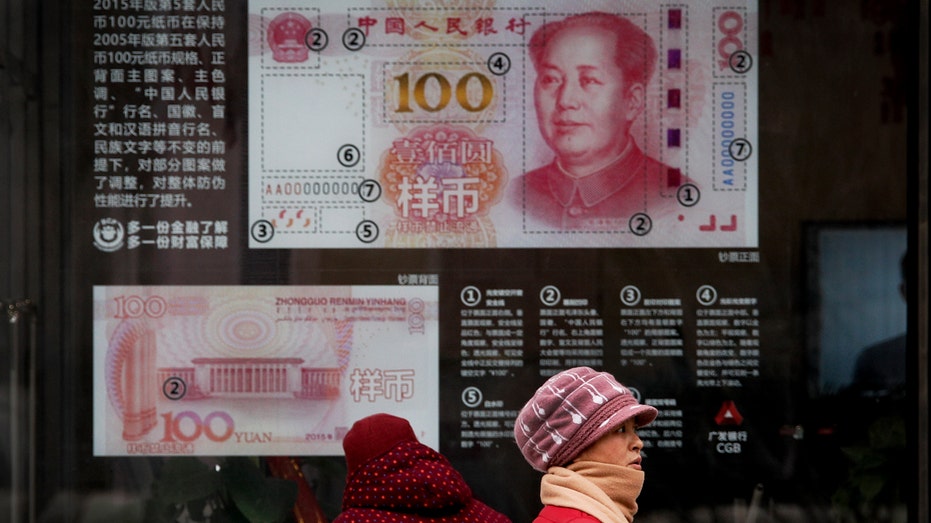
Women walk by a bank window panel displaying the security markers on the latest 100 Yuan notes in Beijing, Monday, Feb. 18, 2019. China's policy ministry says it investigated 380 online lenders and froze $1.5 billion in assets in a crackdown followin (AP)
By midday on Monday, President Trump had fired off several tweets about "historic currency manipulation by China." Later that evening, the Treasury department, for the first time in 25 years, named China a currency manipulator.
Treasury says it will work with the International Monetary Fund to resolve the "“unfair competitive advantage created by China’s latest actions."




















